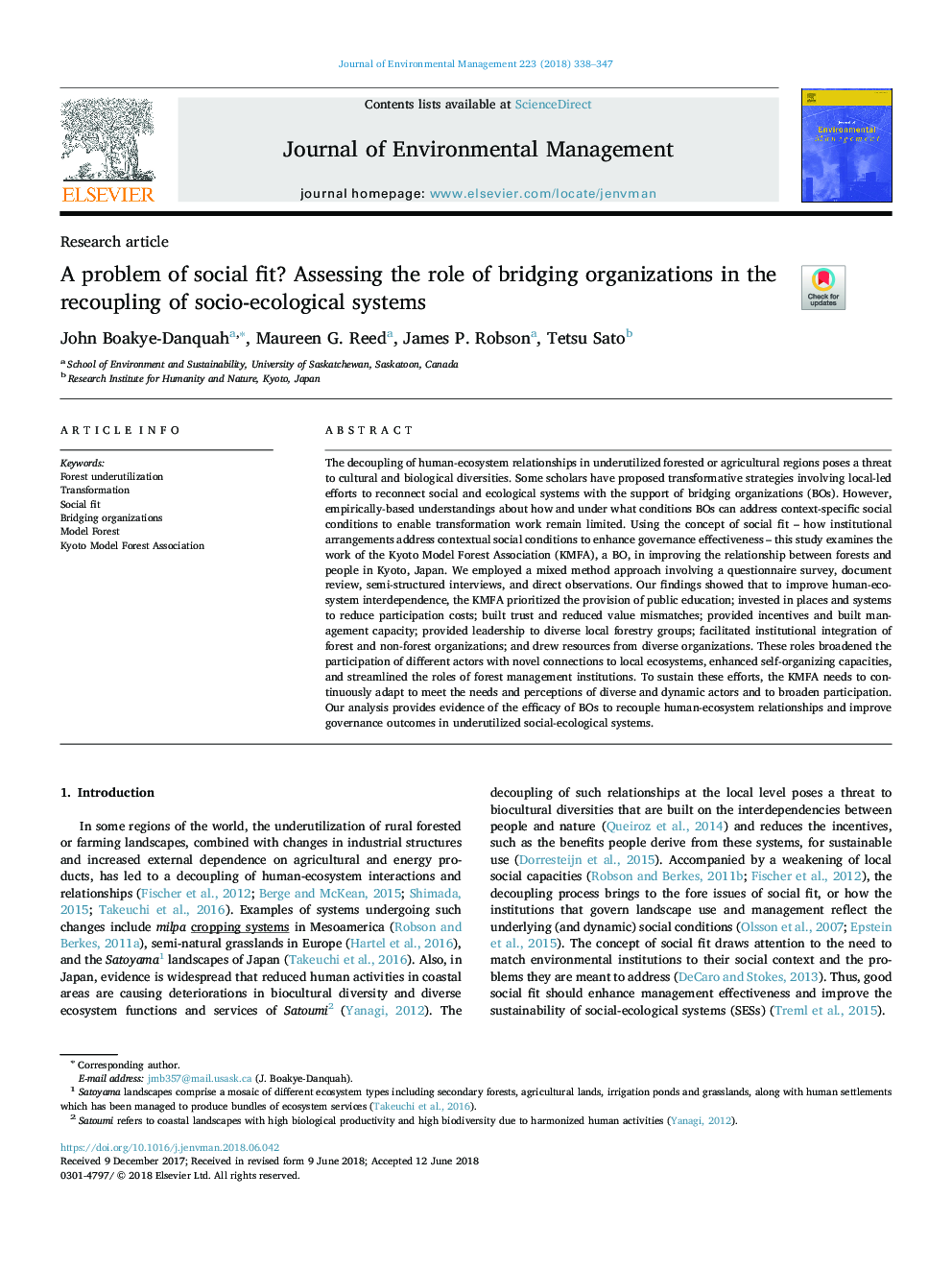| کد مقاله | کد نشریه | سال انتشار | مقاله انگلیسی | نسخه تمام متن |
|---|---|---|---|---|
| 7475867 | 1485195 | 2018 | 10 صفحه PDF | دانلود رایگان |
عنوان انگلیسی مقاله ISI
A problem of social fit? Assessing the role of bridging organizations in the recoupling of socio-ecological systems
ترجمه فارسی عنوان
یک مشکل اجتماعی مناسب است؟ ارزیابی نقش سازمان های پلید در تلفیق سیستم های اجتماعی و زیست محیطی
دانلود مقاله + سفارش ترجمه
دانلود مقاله ISI انگلیسی
رایگان برای ایرانیان
کلمات کلیدی
استفاده کمتر جنگل، دگرگونی، اجتماعی مناسب، سازمان های مواجهه، مدل جنگل، انجمن جنگل مدل کیوتو،
موضوعات مرتبط
مهندسی و علوم پایه
مهندسی انرژی
انرژی های تجدید پذیر، توسعه پایدار و محیط زیست
چکیده انگلیسی
The decoupling of human-ecosystem relationships in underutilized forested or agricultural regions poses a threat to cultural and biological diversities. Some scholars have proposed transformative strategies involving local-led efforts to reconnect social and ecological systems with the support of bridging organizations (BOs). However, empirically-based understandings about how and under what conditions BOs can address context-specific social conditions to enable transformation work remain limited. Using the concept of social fit - how institutional arrangements address contextual social conditions to enhance governance effectiveness - this study examines the work of the Kyoto Model Forest Association (KMFA), a BO, in improving the relationship between forests and people in Kyoto, Japan. We employed a mixed method approach involving a questionnaire survey, document review, semi-structured interviews, and direct observations. Our findings showed that to improve human-ecosystem interdependence, the KMFA prioritized the provision of public education; invested in places and systems to reduce participation costs; built trust and reduced value mismatches; provided incentives and built management capacity; provided leadership to diverse local forestry groups; facilitated institutional integration of forest and non-forest organizations; and drew resources from diverse organizations. These roles broadened the participation of different actors with novel connections to local ecosystems, enhanced self-organizing capacities, and streamlined the roles of forest management institutions. To sustain these efforts, the KMFA needs to continuously adapt to meet the needs and perceptions of diverse and dynamic actors and to broaden participation. Our analysis provides evidence of the efficacy of BOs to recouple human-ecosystem relationships and improve governance outcomes in underutilized social-ecological systems.
ناشر
Database: Elsevier - ScienceDirect (ساینس دایرکت)
Journal: Journal of Environmental Management - Volume 223, 1 October 2018, Pages 338-347
Journal: Journal of Environmental Management - Volume 223, 1 October 2018, Pages 338-347
نویسندگان
John Boakye-Danquah, Maureen G. Reed, James P. Robson, Tetsu Sato,
